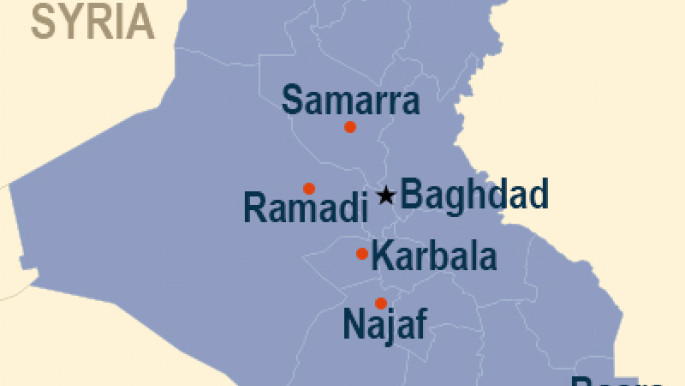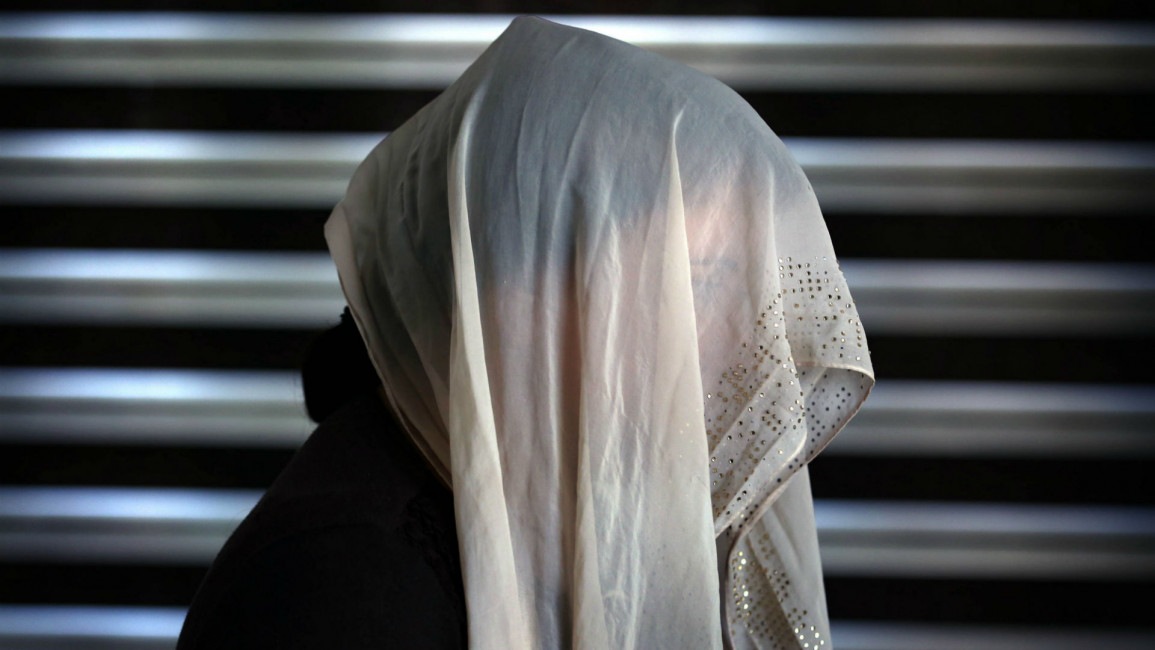'Virginity tests' on Yazidi rape survivors to end
'Virginity tests' on Yazidi rape survivors to end
The practice of forcing Yazidi rape survivors to undergo "virginity tests" is set to end in the Kurdish region of Iraq.
2 min read
Yazidi women have been a particular target of the Islamic State group [Getty]
After Yazidi women survived the horrors at the hands of the Islamic State group in Iraq, many fled to the autonomous Kurdish area - into which IS has yet to make inroads.
"Kurdistan officials took their needs seriously, but subjected some unmarried women and girls to 'virginity tests' - an abusive and inaccurate procedure - as part of a forensic, post-rape examination," said Human Rights Watch.
Judge Ayman Bamerny, who heads a committee gathering evidence of IS crimes, told the international human rights group that these tests were seen as necessary to gather evidence of rape by Iraqi courts.
But the trauma of these tests has led to further psychological damage for rape survivors.
A Yazidi girl who was raped repeatedly by a militant when she was just 13, told the Sunday Times last year she did not feel able to marry after her ordeal, turning down two suitors introduced to her after her escape.
"I refused both of them; I don't want to fall in love," she said. "I don't think I can. I don't want to be married or have children - I am damaged goods."
The stigma many survivors face has lead many to take their own lives, according to medical aid groups.
"Here in Mosul and in the surrounding regions of Kurdistan, the focus on virginity is causing patients to contemplate suicide. Many rape survivors who are not under any kind of formal care do," reported a nurse in Mosul, the stronghold of IS in Iraq.
"The problem is the obsession with virginity among the Iraqi and Kurdish communities. This obsession is handing an easy genocidal weapon of rape to the Islamic State."
This week, Judge Bamerny told HRW that the committee had stopped referring Yazidi survivors for these "virginity tests" - a move welcomed by rights groups.
Instead, the health directorate in Kurdistan's Dohuk has adopted a new medical examination report on sexual violence based on UN recommendations, "consistent with human rights and best practice".
Dohuk's chief judge has also agreed to accept these reports for legal proceedings, he said.
"As officials work towards proper forensic examinations of rape survivors, they should ensure that all women and girls in Iraq who were subject to sexual violence are treated with dignity and respect," wrote Rotha Bengum, a researcher for HRW.
According to Iraqi police officials, around 837 Iraqi women were been executed by the Islamic State group last year.
"Kurdistan officials took their needs seriously, but subjected some unmarried women and girls to 'virginity tests' - an abusive and inaccurate procedure - as part of a forensic, post-rape examination," said Human Rights Watch.
Judge Ayman Bamerny, who heads a committee gathering evidence of IS crimes, told the international human rights group that these tests were seen as necessary to gather evidence of rape by Iraqi courts.
But the trauma of these tests has led to further psychological damage for rape survivors.
A Yazidi girl who was raped repeatedly by a militant when she was just 13, told the Sunday Times last year she did not feel able to marry after her ordeal, turning down two suitors introduced to her after her escape.
"I refused both of them; I don't want to fall in love," she said. "I don't think I can. I don't want to be married or have children - I am damaged goods."
The stigma many survivors face has lead many to take their own lives, according to medical aid groups.
 |
|
"Here in Mosul and in the surrounding regions of Kurdistan, the focus on virginity is causing patients to contemplate suicide. Many rape survivors who are not under any kind of formal care do," reported a nurse in Mosul, the stronghold of IS in Iraq.
"The problem is the obsession with virginity among the Iraqi and Kurdish communities. This obsession is handing an easy genocidal weapon of rape to the Islamic State."
This week, Judge Bamerny told HRW that the committee had stopped referring Yazidi survivors for these "virginity tests" - a move welcomed by rights groups.
Instead, the health directorate in Kurdistan's Dohuk has adopted a new medical examination report on sexual violence based on UN recommendations, "consistent with human rights and best practice".
Dohuk's chief judge has also agreed to accept these reports for legal proceedings, he said.
"As officials work towards proper forensic examinations of rape survivors, they should ensure that all women and girls in Iraq who were subject to sexual violence are treated with dignity and respect," wrote Rotha Bengum, a researcher for HRW.
According to Iraqi police officials, around 837 Iraqi women were been executed by the Islamic State group last year.



